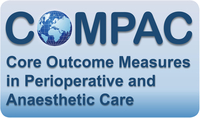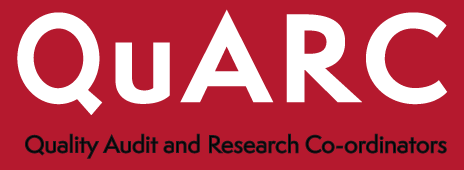Core Outcome Measures in Perioperative and Anaesthetic Care (COMPAC)

"If you cannot measure it... your knowledge is of a meagre and unsatisfactory kind" - Lord Kelvin, 1891
Clearly defined, patient-centred perioperative outcomes are fundamental to clinical practice. Evaluating the quality of the care we provide relies on reliable outcome measurement: without precisely defined outcome measures that genuinely matter to patients and healthcare providers, we have no means of assessing the results of what we do.
Robust outcome measurement is equally fundamental to perioperative research. Any investigation which seeks to improve perioperative care needs to report outcomes that can be reliably compared with those of other similar trials. Comparing Granny Smiths with Braeburns is futile: similarly, comparing rates of perioperative myocardial infarction in different trials is impossible unless 'myocardial infarction' has been consistently defined across those trials.
The Problem
At the moment, there is no firm consensus across the anaesthetic, surgical, and perioperative research communities regarding what outcomes are important, nor how to measure them. This lack of consensus has two important adverse consequences. Firstly, heterogeneity of outcome reporting in randomised controlled trials (RCTs), which limits the validity of comparing or combining results in systematic reviews. Second, selectivity of outcome reporting - i.e. a tendency to report only outcomes of statistical or 'clinical' significance.
The Solution
Standardising outcome measurement in anaesthesia and perioperative medicine trials would help reduce these inconsistencies, and facilitate comparison and interpretation of results from RCTs involving patients undergoing major surgery. Developing a set of 'core' outcomes - meaning outcomes which are so fundamental to patients and clinicians that they should be measured in all trials - would further aid comparison of results between trials, and ensure that important results are not omitted when research is published.
The Process
COMET (Core Outcome Measures for Effectiveness Trials) is an international initiative to promote and facilitate standardisation of outcome measurement. COMPAC (Core Outcome Measures for Perioperative and Anaesthetic Care) is an HSRC-sponsored initiative led by Professor Mike Grocott (University of Southampton, UK). This project is being run alongside the StEP (Standardised Endpoints for Perioperative Medicine) initiative led by Professor Paul Myles (Monash University, Melbourne, Australia) which seeks to standardise definitions (criteria) for specific outcome measures used in anaesthetic and perioperative care studies.
COMPAC involves three stages:
- 1. Systematic review of evidence: A recently completed wide-ranging review of outcome reporting in the surgical, anaesthetic and perioperative literature from the past decade found frequent inconsistencies in outcome measurement. Many trials did not report certain outcomes at all; many other trials failed to define their outcomes, or provided ambiguous outcome definitions or criteria. Only a few trials used consistent, internationally accepted definitions or criteria for their outcome measures.
- 2. Stakeholder consultation exercise: In 2017 we will be conducting a new study, P-COMMaS (Patient-Centred Outcome Measures for Major Surgery), seeking views from patients and carers with experience of major surgery, and clinicians involved in all aspects of perioperative care. P-COMMaS will use surveys and interviews to explore the question 'Which outcomes matter most to patients after major surgery?' The views obtained will inform the final stage of the COMPAC initiative.
Are you a perioperative clinician? Or a patient or carer with experience of major surgery? Help us develop Core Outcomes for Perioperative and Anaesthetic Care by contributing to P-COMMaS!
- 3. Delphi consensus process: The results of our systematic review and the P-COMMaS study will be used to compile a longlist of candidate core outcome measures. Invited stakeholders including patients, clinicians and researchers will then 'rank' the candidate outcomes in an iterative Delphi process. The final 'Core Outcome Set' will include the outcome measures rated most highly across all stakeholder groups.
COMPAC Publications
- Reply to Slankamenac et al's Comprehensive Complication Index Validation Study. Boney O, Moonesinghe SR, Grocott M. Annals of Surgery, August 2016.
- Standardizing endpoints in perioperative trials: towards a core and extended outcome set. Myles PS, Grocott M, Boney O, Moonesinghe SR. British Journal of Anaesthesia, May 2016.
- Standardizing endpoints in perioperative research. Boney O, Moonesinghe SR, Myles PS, Grocott M. Canadian Journal of Anaesthesia, February 2016.
For more information, please contact:
Dr Oliver Boney, COMPAC Research Fellow
Surgical Outcomes Research Centre
University College London Hospitals NHS Foundation Trust
London NW1 2BU







